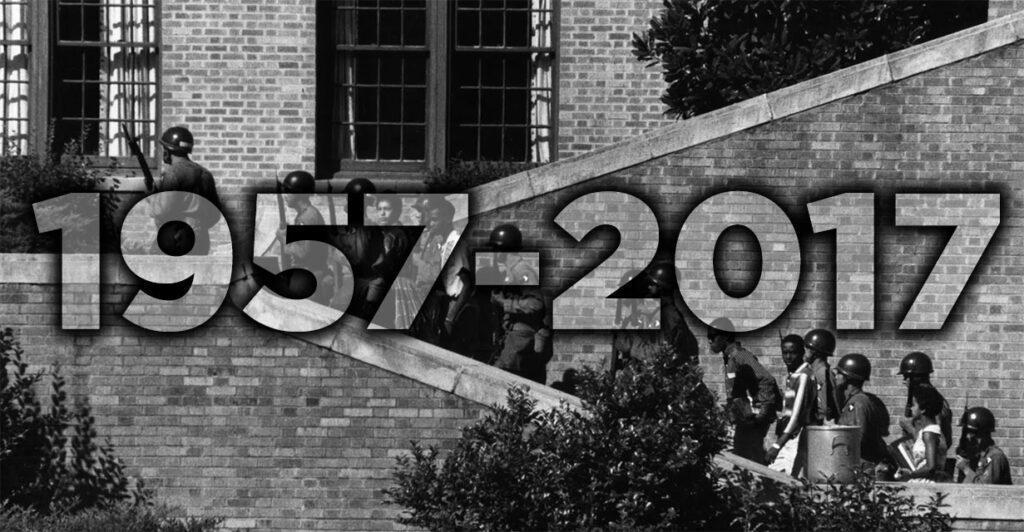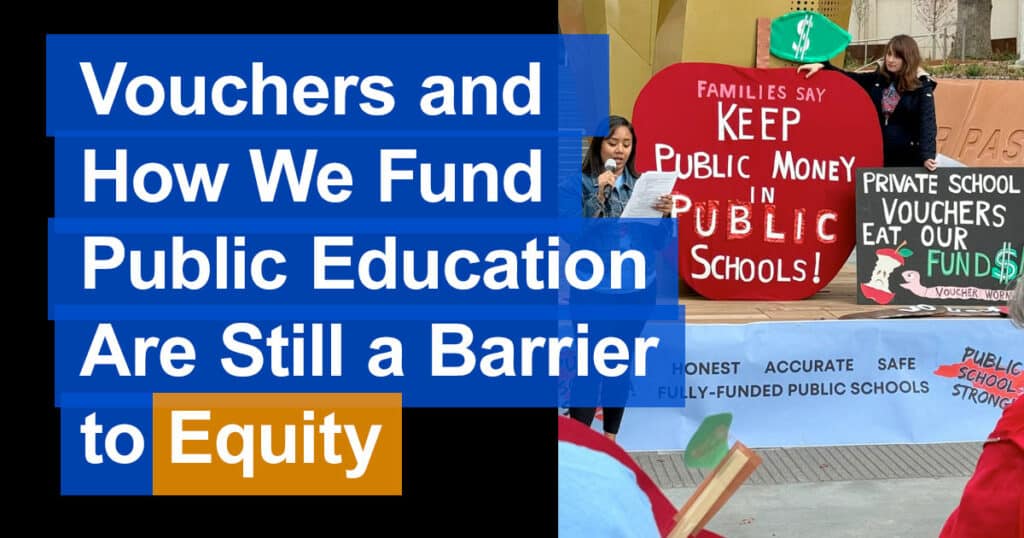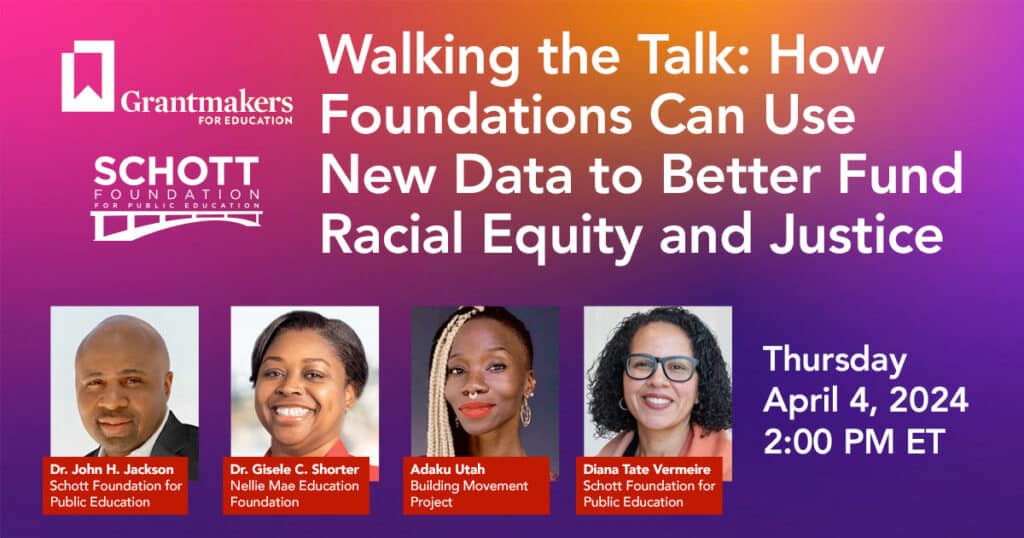Blog
60 Years Since the Little Rock Nine—and So Much More to Do

Today, September 25th, marks 60 years since the integration of Little Rock’s Central High School — the day the Little Rock Nine became the first Black students to attend it. That day in 1957 was the culmination of years of legal and civil rights battles but also presaged the hard work and struggles to come, both inside and outside the school gates.
That day was also the first test of the Federal government’s resolve to enforce Brown v. Board. In the face of mobs of angry white segregationists, paratroopers from the 101st Airborne were brought to Little Rock to escort the students in. Soldiers stayed stationed there for the rest of the school year to keep the peace.
The eight surviving members of the Little Rock Nine gathered last week to commemorate the anniversary.
The intervening decades have shown that while de jure segregation could be successfully fought, de facto segregation has proven stubborn and resurgent — a burden on children and families across the country.
The Schott Foundation is proud to support the work of Grassroots Arkansas, which held its own commemoration events this past Saturday, including speakers, a movement assembly on education and musical performances, all of which drove home the point that the struggle for racial justice and equity in public education is far from over.
We at GRASSROOTS Arkansas are deeply grateful to Elizabeth Eckford & Thelma Mothershed-Wair, two of the Little Rock pic.twitter.com/FbDSwkk7aZ
— Joyce Elliott (@xjelliott) September 24, 2017
On Saturday, State Senator Joyce Elliott spoke at the Grassroots Arkansas event:
State Sen. Joyce Elliott (D-Little Rock) told reporters that the group wanted to take a critical look at the progress that’s been made in Little Rock schools since 1957. “It is with a heavy heart … that we look at this word ‘progress,'” she said. “It is not to say that sixty years later we have not made progress. It is to be clear that we aren’t nearly to the point of progress that we need to be …
“In 1957, we had schools on the way to being taken over, and … here we are sixty years later and the Little Rock School District is under state control. … Sixty years later, there are schools all over this district that are hyper-segregated. We have to think about what we mean by ‘progress’ in that kind of setting.”
CityLab reported earlier this year many of the ways in which schools are resegregating:
By 1980, the share of Southern black students in “intensely segregated schools”—those in which students of color comprise 90 percent or more of the student body—had decreased from almost 80 percent to 23 percent.
But since then, several Supreme Court decisions have undermined integration, largely allowing suburbs to forego school desegregation and empowering lower courts to discontinue desegregation plans if they think school districts have accomplished as much integration as is possible.
[…]
And though over the past decade the nation has seen a decline in private schools, which are overwhelmingly white, this decline is less pronounced in the South. The rise of more segregated charters, paired with the persistence of private schools, are contributing to a reversal of the gains in integration made in the 1960s and 1970s.
As grassroots organizer Dr. Anika Whitfield put it in a recent op-ed for the Huffington Post:
In Little Rock, there is no coincidence that as the LRSD administration decided to close public schools, they have primarily closed schools that are in predominantly black and predominantly low-income communities. As a result, one can draw contiguous lines between public, neighborhood school closures and the increase in crimes, arrests, food deserts and a significant decrease in economic development, property value and access to healthy recreation, which further weakens and marginalizes those remaining in these communities.
[…]
We cannot continue to allow this to happen. I will continue with others not only to resist but to educate and to organize more active support for reclaiming our public schools, our neighborhoods and communities. Until we ensure that all of our public school systems are working to educate all children, then democracy is a word without meaning in the United States of America.
Sixty years on, the struggle continues. And like before, the only way we will win a better future is through coming together and organizing in our schools, workplaces, and communities.


